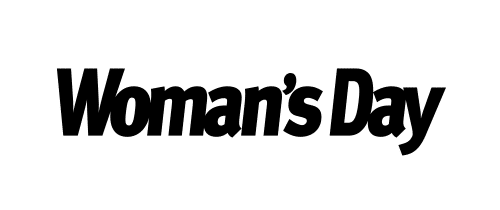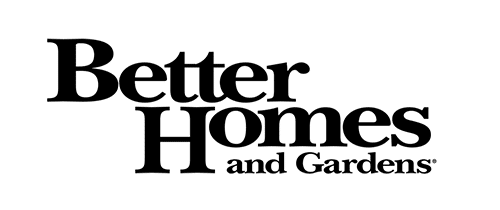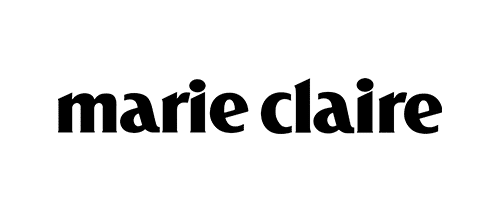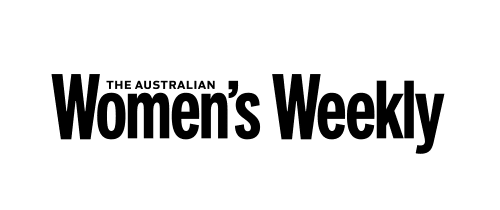The Stella team met Moo and some of her colleagues from Woman’s & Girls’ Emergency Centre a couple of months ago and there were immediately synergies between their goal to end gender-based violence in a generation and what we at Stella are committed to achieve as a business.
Stella was born to be more than just an insurer; we believe that we can make meaningful change through education, support and empowerment that will give women the tools they need to make informed choices and amplify women’s voices for generations to come.
We’re delighted to be able to use our voice in promoting WAGEC’s work to drive positive social change and help them to shine a light on the underlying structural causes of domestic and family violence, homelessness and gender inequality.
We’re so excited to introduce you to Moo Baulch, Director of Primary Prevention at WAGEC, here’s a little more of Moo’s story.
Tell us a little about your career background and what brought you to WAGEC?
I have one of the best jobs in the world! It’s serendipity that I’ve recently landed at the Women’s and Girls’ Emergency Centre (WAGEC) as Director of Primary Prevention. I’ve had a fascinating (and very unplanned) career trajectory working in a number of different anti-violence and peacebuilding settings over the last couple of decades here and in SE Asia and Europe.
Until late 2019 I had the privilege of leading the peak body Domestic Violence NSW at a critical time when Australia began to start talking honestly about gender-based violence. More recently I’ve been working with Commbank supporting the development of their groundbreaking response to financial abuse. I’m so impressed by what the financial services sector is doing to improve its responses to people impacted by violence and vulnerability.
I’ve always enjoyed talking to people across a range of settings and industries and connecting the dots so this role at WAGEC ticks all the boxes.
What do you love most about your work with WAGEC?
I love the culture of the organisation, the people I work with and for, and WAGEC’s deep authentic commitment to social justice and feminism. For an organisation of our size, in our setting, WAGEC’s structure, purpose and commitment to prevention are visionary. After 6 years at the peak and with a young family, I needed a job that was continuing to build and grow on what’s already been achieved in terms of public awareness of gendered violence whilst allowing me to work part-time. WAGEC is a genuinely flexible, family-friendly, awesome workplace. My job is 100% positive, it’s all about giving individuals, community groups, businesses and public and private entities the tools they need to challenge violence in their everyday lives and be part of the solution.
In your opinion what do you believe the government should be doing to help the victims of DV?
Well, the obvious answer is to fund services adequately so that victim-survivors can be supported with responses that meet their needs wherever they are on the pathway to recovery. This means resourcing specialist community-controlled services, safe and affordable housing stability, specialist counselling support for victim-survivors and children and young people and supportive pathways to employment and study. We’ve had record investments in Australia in the crisis system by both levels of government but the reality is that in most postcodes there’s still not enough in the right places to allow services to offer truly integrated person-centred support.
What I’d like to see those in power do more than anything is to start walking the talk. Most people have a level of awareness of the size of the problem and the impacts of gendered violence but at the same time we still have prominent leaders criticising men for being sooks, women’s participation in leadership roles is still way behind other comparable nations and our COVID recovery plan seems to have completely dropped the ball on women as employees, or parents who have primary caring responsibilities.
Until our leaders begin to embrace and embody the basic principles of primary prevention as articulated in Our Watch’s Change the Story framework we are not going to see the widespread social change that needs to occur if we’re going to begin shifting the horrific homicide statistics and systems abuse that predominantly impact women and their children in Australia.
How can people get involved, help WAGEC and women in DV situations as a whole?
Each one of us can commit to being a part of the movement to end gendered violence in a generation. It may sound huge and insurmountable but there are very real concrete actions that we can all take daily to promote gender equality and contribute to the bigger, longer-term goal.
Challenging violence-supportive attitudes, ensuring that all genders have equal access to education and employment opportunities, teaching our smallest ones respect for self and others, calling out sexism and discrimination, using our power and influence in family, community and work settings to challenge the attitudes and behaviours that support and perpetuate violence are all things we can be a part of.
Who inspires you personally?
Well beyond the obvious answers – Michelle Obama, Jacinda Arden, my mums… In no particular order I would say the people I’ve met in the women’s sector who inspire me include:
• June Oscar, Australia’s Social Justice Commissioner from Fitzroy Crossing who recently released the landmark Wiyi Yani U Thangani report after listening to more than Aboriginal women and girls across Australia.
• Deb Kilroy from Sisters Inside, a prison abolitionist, lawyer, and tireless lived experience advocate for women in QLD prisons.
• Christine Robinson, the coordinator of Wirringa Baiya Aboriginal Women’s Legal Service – a specialist legal service supporting women, children and young people who are impacted by violence across NSW.
• Dixie Link-Gordon, adjunct senior lecturer, community leader, anti-violence advocate and survivor who leads the Breaking Silent Codes initiative sharing stories of survival to challenge the silence around the violence that First Nations women experience.
If I had to pick a political leader it’d be Ada Colau, who was elected as the first female mayor of Barcelona in 2015. She’s a fierce, feminist activist who came to politics as a fighter for affordable housing and the right to protest and has led the city boldly and with a vision of social inclusion despite the ravages of COVID, tourism and a complex ongoing state battle for independence.
What motivates you?
Every day is the hope that I can make a tiny contribution to make the future better for my two daughters who are almost 5 months and 4 years old, all my nieces and nephews who are spread across the country and my goddaughter Laurel who is 20 and lives in Brighton, UK. She’s living through the harsh reality of the UK lockdown and I’m constantly learning from her via Instagram and WhatsApp about what young people expect from our leaders in terms of race, environmental and social justice.
It gives me hope and makes me want to do and be better.
Diversity and acceptance are a huge part of the WAGEC company culture, what policies are in place to ensure that everyone is across this?
It goes beyond WAGEC’s workplace policies, it’s a strongly embedded culture of feminist leadership that exists throughout the organisation’s structure and drives the way that we work with our clients, partners and each other. We have our FRICHSSS guiding principles (feminist, respect, integrity, collaboration, hope, strength, structure and social change) and we work from the perspective that it could be any of us. So many Australians are only one or two steps away from the risk of homelessness, vulnerable circumstances or social disadvantage and we know that 1 in 3 Australian women will experience violence or abuse in her lifetime.
Why do you think Australia’s DV numbers are so high? And what can we do as a country or as women to help get these statistics down.
We all have a sense of the size of the problem and the prevalence of gender-based violence, it’s time for us all to act. We are all part of the solution – no single organisation or government agency or system is going to fix a problem of this magnitude. The reality is that gender inequality and the resulting violence is deeply embedded in modern Australian culture and it’s going to require sustained action from us all to reduce the statistics.
As a nation we need to commit to ending violence against women and girls and put the same sort of resources, policy responses and attention to it that we have with other large scale public health issues like seatbelts, tobacco and drink driving. As individuals, we can all hop on the Our Watch website and educate ourselves, watch the Change the Story video and work out what our place is in being part of the solution. We can connect with local services and initiatives that are challenging violence and ask what we can do to support their work.
Ultimately we need our community and political leaders to take this seriously and to use their power and influence to take action.
WAGEC is always looking for people who want to support and engage with our work. Just check out our beautiful website and click the “Get involved” tab. Our services may be based in Sydney but the prevention message and work isn’t constrained by geographical boundaries. There is a myriad of ways to get involved – buy some merch, make a donation big or small or just read a bit about where we’ve come from, what we do and how we do it. If you like it then follow us on socials.
What is it about Stella you like the most?
The thing I like most about Stella is the people in the team! The ones I’ve met are smart, passionate, committed to being part of the movement to gendered violence and already doing their bit as feminist activists – in business and the world. I love that women can make a positive feminist change in any sector that they choose, and that gender equality is an expectation regardless of where you work, socialise or have influence. We all have a responsibility to use our influence and experience to make the world better for others and that’s the vibe I get from the Stella crew.





